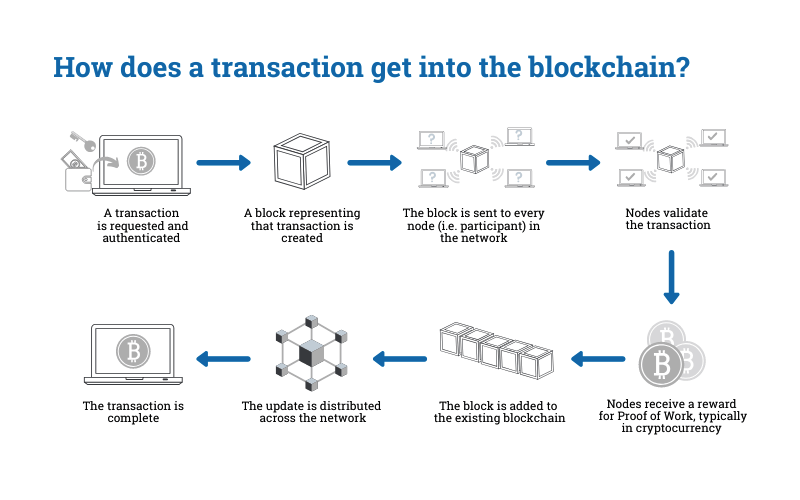
What is blockchain?
Blockchain is a distributed, unchangeable ledger that makes it easier to record transactions and track assets in a corporate network. An asset can be either physical (such as a house, vehicle, cash, or land) or intangible (intellectual property, patents, copyrights, branding). On a blockchain network, virtually anything of value may be monitored and sold, lowering risk and costs for all parties involved.
In a traditional database, a “master” set of information is stored at a central location and distributed to other participants. By contrast, blockchain is essentially a distributed database in which all information is updated, encrypted, and maintained at each “node” (or participant) on the chain.
The distributed ledger and its immutable record of transactions are accessible to all network members. Transactions are recorded just once using this shared ledger, avoiding the duplication of effort that is common in traditional corporate networks.
To speed transactions, a set of rules — called a smart contract — is stored on the blockchain and executed automatically. A smart contract can define conditions for corporate bond transfers, include terms for travel insurance to be paid and much more.
Key Takeaways
- It differs from a typical database in the way it stores information; blockchains store data in blocks that are then chained together.
- As new data comes in it is entered into a fresh block. Once the block is filled with data it is chained onto the previous block, which makes the data chained together in chronological order.
- Decentralized blockchains are immutable, which means that the data entered is irreversible. For Bitcoin, this means that transactions are permanently recorded and viewable to anyone.
- With blockchain, as a member of a members-only network, you can rest assured that you are receiving accurate and timely data, and that your confidential blockchain records will be shared only with network members to whom you have specifically granted access.
- Greater security, More efficiency.
Types of blockchain networks:
- Public blockchain networks
- Private blockchain networks
- Permissioned blockchain networks
- Consortium blockchains
Some companies that have already incorporated blockchain include Walmart, Pfizer, AIG, Siemens, Unilever, and a host of others. For example, IBM has created its Food Trust blockchain to trace the journey that food products take to get to its locations.
Thanks For reading! Peace out!
